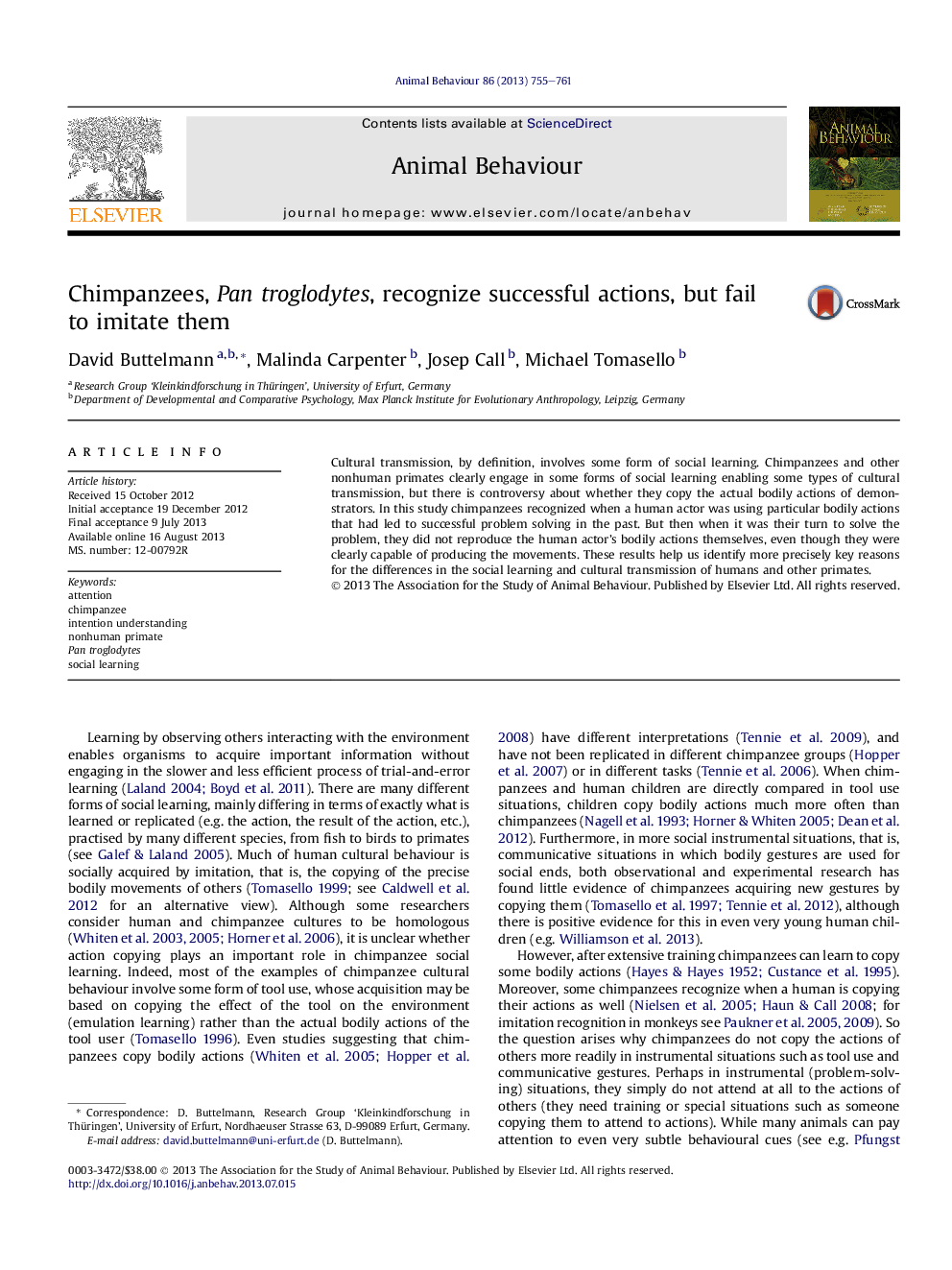| Article ID | Journal | Published Year | Pages | File Type |
|---|---|---|---|---|
| 10970720 | Animal Behaviour | 2013 | 7 Pages |
Abstract
Cultural transmission, by definition, involves some form of social learning. Chimpanzees and other nonhuman primates clearly engage in some forms of social learning enabling some types of cultural transmission, but there is controversy about whether they copy the actual bodily actions of demonstrators. In this study chimpanzees recognized when a human actor was using particular bodily actions that had led to successful problem solving in the past. But then when it was their turn to solve the problem, they did not reproduce the human actor's bodily actions themselves, even though they were clearly capable of producing the movements. These results help us identify more precisely key reasons for the differences in the social learning and cultural transmission of humans and other primates.
Related Topics
Life Sciences
Agricultural and Biological Sciences
Animal Science and Zoology
Authors
David Buttelmann, Malinda Carpenter, Josep Call, Michael Tomasello,
